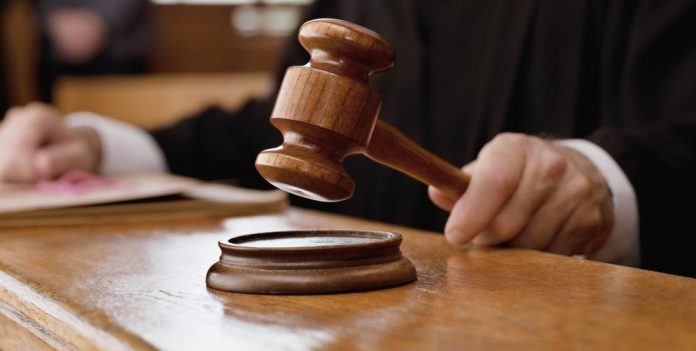Supreme Court Judgment- Siddiq (D) Thr Lrs v. Mahant Suresh Das, decided on 27 September, 2018
Introduction
This case is related to long argued Ayodhya Ramjanmbhumi dispute where an appeal was filed by the appellant from the judgment of Ismail Faruqui v. Union of India, popularly known as Ismail Faruqui case in which the court held that the decision in Ismail Faruqui case did not require reconsideration and hence appellant’s contentions were denied.
Facts
The facts of this case were as follows[i]:
- Ayodhya is a township in north Indian district of Faizabad where the disputed land that is subject matter of this case is situated. This land is considered to be a Hindu pilgrimage where Lord Ram is said to have taken birth. This is why the disputed land is also known as Ramjanmbhumi.
- In 1528, one Mir Baqi constructed a mosque which was said to have included some part of Ramjanmbhumi as well. This led to mass level dispute that took different shapes later on.
- In 1949 idols were placed inside the structure of mosque and hindus started doing worship there. Suits were filed under S. 145 of CrPC and interim orders were issued to restrain anyone from removing idols from that place till the suit was final decided.
- This continued till 1992. In the meantime, BJP government was formed in Uttar Pradesh which acquired the land surrounding the disputed land leaving the land in dispute out of acquisition area. This acquisition was done with an aim to construct Ram Mandir at that place with the help of Kar Seva.
- The attempt to construct Ram Mandir did not succeed as litigation was initiated in High Court of Allahabad as well as in Supreme Court.
- On 06th December 1992, crowd lead by leaders of BJP and VHP climbed on the structure of mosque and demolished it within few minutes. 500 years old defence less structure was demolished by a majority community which led to huge turmoil in the country’s political as well as legal structure.
- As a result of this, a proclamation was issued by the President of India under Art. 356 of Constitution through which he assumed all the functions of Uttar Pradesh government in himself and thereby dissolved UP Vidhan Sabha.
- Also as a consequence of acts on 6th Dec, 1992 the Central Government decided to acquire all the area in dispute along with certain adjoining areas which was to be made available to two different trusts for the construction of a temple and a mosque.
- The President also requested Supreme Court to look after the matter to decide whether the disputed land belonged to the temple or the mosque and reference was made under Art. 143 of Constitution. An ordinance was passed in 1993 to acquire certain areas on disputed land that included 67.703 acres land of Ramjanmbhumi – Babri Masjid Complex.
- The ordinance was challenged and a writ petition was filed in Supreme Court under Art. 32. Many other similar writ petitions were also filed in Allahabad High Court. Supreme Court transferred all the writ petitions filed in Allahabad High Court related to this case under Art. 139A and a Constitutional Bench heard and decided the matter in Ismail Faruqui case.
- One of the petitioners of that case Mohd. Aslam filed another writ petition regarding relief in 67.703 acres land acquired through ordinance which was finally decided by Supreme Court on 13/03/2003 stating that order of court in Faruqui case shall operate until Allahabad High Court decides the suits pending before it.
- On 30/10/2010 Allahabd High Court decided all suits on merit. Both plaintiff and defendant being aggrieved by the judgement filed an appeal in Supreme Court which is the case in this matter.
- In Ismail Faruqui case the court had heard the contentions that challenged the ordinance of 1993 on several grounds one of which was it violated Art. 25 and 26 of the Constitution. The court thereby held that every immovable property be it temple, mosque, church etc. can be acquired by the State and no special treatment can be afforded to mosque. This judgement was therefore asked to be reconsidered in the present appeal.
Issues Raised
- The only issue involved in this case was whether the Ismail Faruqui case judgment required reconsideration by the court.
Judgment and Decision
- The Supreme Court denied the contentions made by the appellants and thereby upheld the judgment in Ismail Faruqui case stating that it did not need any reconsideration and shall not be referred to a larger bench.
- The court also denied respondents contention relating to res judicata stating that issues raised in appeal were different and cannot be said to be directly and substantially in issue in Ismail Faruqui case.
- Further while denying the contention of the appellant regarding the violation of Art. 25 and 26 of Indian Constitution, Ashok Bhushan J. stated in his majority judgement that unless any hindrance is being made in the offering of prayer at a specific place which is an hindrance to worship there is no violation of Art. 25 and 26 and therefore the acquisition of mosque cannot be challenged on this ground.
- Also the court stated that mosque as has been claimed by the appellants, cannot be said to hold immunity of any kind from the action of Government including acquisition by the government on any ground.
- Therefore the contentions made by appellant cannot be said to be relevant in deciding the matter either in Ismail Faruqui case or in the present appeal.
- Hence it held that no case can be made out seeking reference of these appeals to Constitutional Bench of Supreme Court.





